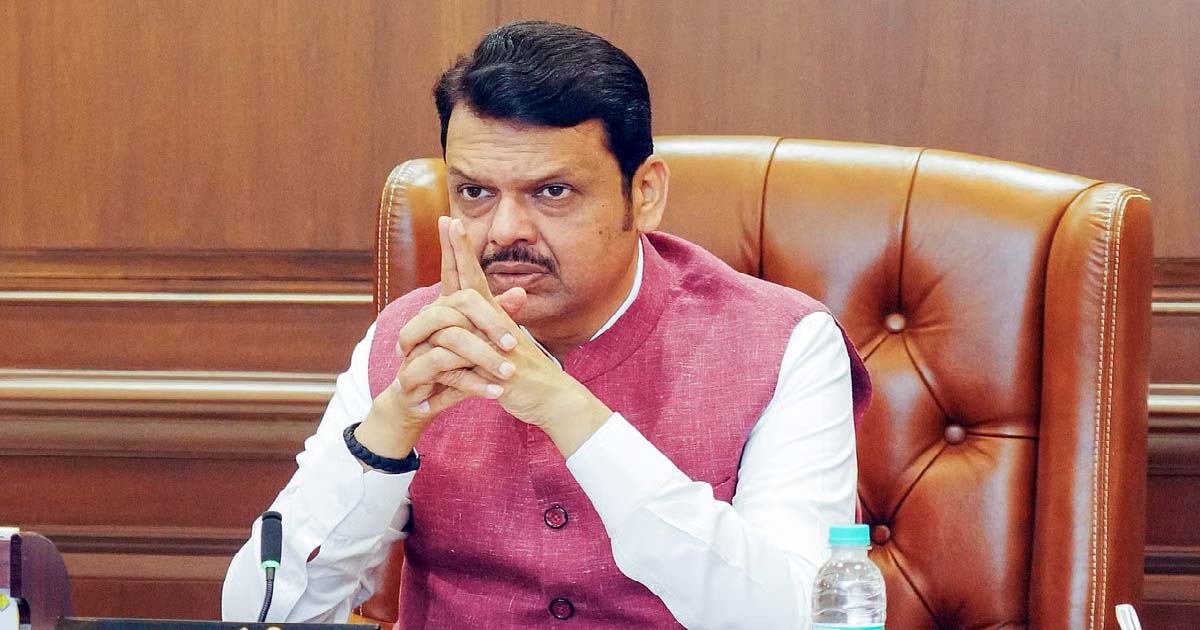National News
India is safe in the hands of PM Modi, says Farooq Abdullah on Pahalgam attack fallout

New Delhi, May 2: Jammu and Kashmir National Conference President, Farooq Abdullah on Friday strongly condemned the recent terror attack in J&K’s Pahalgam and called for strict action against the perpetrators of the massacre of 26 innocent civilians. He also asserted that India was safe in the hands of Prime Minister Narendra Modi.
In an interview with Media, Abdullah spoke about Pakistan’s role in terrorism and demanded strict action against those involved in the recent Pahalgam attack. He also discussed issues ranging from the Indus Water Treaty to the caste census.
Here is the full interview:
Media: What is your opinion on the Pahalgam terror attack?
Farooq Abdullah: The Pahalgam incident was very painful. It should not have happened. This is a murder of humanity. Those who did this must be condemned as much as possible. They should be caught and punished in such a way that it becomes an example for others.
Media: Do you think Pakistan has a hand in the Pahalgam incident?
Farooq Abdullah: Anyone could be involved in the Pahalgam incident. Until we catch them, we cannot say who it is. The handlers must be the same ones who did it before. It’s not just about today. They did it in Uri too. You must have seen what happened in Pulwama. Who did it in Mumbai? Who did it in Pathankot? Who did it in Rajouri and Poonch? The handlers are sitting there.
Media: Was the Pahalgam incident a conspiracy by Pakistan?
Farooq Abdullah: They (Pakistan) feel that we (Indians) are living in peace and thousands of tourists are roaming here in Kashmir. They didn’t like it. They don’t want us to live in peace. Since 1947, they have tried to destroy as much as they can and will continue to try.
Media: Can India take back Pakistan-Occupied-Kashmir?
Farooq Abdullah: This is a decision for the country’s Prime Minister to take. Farooq Abdullah cannot give him any advice. This must be the Prime Minister’s call.
Media: Is the country safe in the hands of the Prime Minister?
Farooq Abdullah: If the country wasn’t safe in the hands of the PM, he wouldn’t be the PM. Today, the PM has to take care of everyone, every citizen of the country, he must do that.
Media: Pakistanis are being expelled from India, how do you see this?
Farooq Abdullah: Those people have been living here for 50 years. Women who were married here, have children, and now they’ve been sent to Pakistan. Now they are neither here nor there. What kind of justice is this? Their children are here. They are citizens here. The Prime Minister will have to make a decision on what to do.
Media: Did the Pahalgam incident happen because of the Waqf Act?
Farooq Abdullah: The Waqf Act is different, the Pahalgam incident is different. We cannot link both. The Waqf matter is in the Supreme Court. We hope the Supreme Court will look at this matter properly.
Media: Could local Kashmiris have had a role in the Pahalgam incident?
Farooq Abdullah: I don’t think this kind of thing can happen without some kind of help. Unless someone supports them, how did they come? From where did they come? I said earlier, too, when Masood Azhar was released, I said don’t release him. He has already made his paths. Who knows if he is involved in this too? But no one listened to me. They took him to Pakistan. Children were killed here. They shot my cousin at his home. We caught him with great difficulty, but they took him in a plane to Kandahar. No one listened to us in that.
Media: Is it right to stop Pakistan’s water?
Farooq Abdullah: We’ve been saying for years that this treaty should be renegotiated. We are generating power from that water, but their people come and monitor. The water is ours. We have a right to it. We already have a water shortage in Jammu. In my time, a Rs 200 crore plan was made to bring water from Chenab to Delhi but the World Bank did not approve. Today I believe it is the right time to work on this water issue so Jammu can get water. It’s our own water and we’re not even using it. This treaty must be renegotiated.
Media: Whose fault could the Pahalgam incident be?
Farooq Abdullah: We are nearing the point of war. At this point, if we point out whose mistake it is, it won’t be right. This is not the time to point fingers. This won’t make India stronger. Once the matter is settled and we catch them, then a commission should be set up to see whose mistake it was, and where the lapse happened. Now is not the time to blame anyone, now is the time to act.
Media: What is your view on the caste census?
Farooq Abdullah: The caste census is a very good thing. How many Dalits are there? How many Muslims are there, how many Sikhs, how many Christians, how many Buddhists, everyone will know. This country belongs to everyone. The world will know this country is a garden of many colours and that many people live here; people who believe in it. It’s a good thing. This demand has been there for a long time.
Media: Is the country ready for war?
Farooq Abdullah: This will be the Prime Minister’s final command. The PM has given full freedom to the three chiefs of the Army, Navy, and Air Force. But the final command is in the PM’s hand.
Media: Do you think war is the only solution?
Farooq Abdullah: I would say, we should see Russia and Ukraine’s war. Who suffered? Ukraine got destroyed. America did not, even give weapons, but people died in Ukraine. Both sides should think about who suffers. There should be an attempt to open diplomatic channels. In America itself there was terrorism, 9/11 can’t be forgotten. We have given warnings several times to stop terrorism but they won’t listen.
Crime
A powerful explosion near Delhi’s Red Fort… High alert across Delhi after the blast; 8 people killed; forensic team arrives at the scene.

New Delhi: A car explosion near Gate No. 1 of the Red Fort Metro Station on Monday evening caused widespread panic. The force of the blast was so intense that a part of the car landed on the Lal Mandir, located near the Red Fort. The temple’s glass shattered, and doors and windows of several nearby shops were damaged. Several people were reported injured in the incident.
Immediately after the blast, fires were reported in nearby shops. Tremors were felt as far as the Bhagirath Palace area of Chandni Chowk, and shopkeepers were seen calling each other to inquire about the situation. Several buses and other vehicles were also reported to have caught fire.
The fire department received a call about the car explosion in the evening. Following this, it immediately dispatched six ambulances and seven fire tenders to the scene. Relief and rescue operations are underway, and efforts are underway to control the fire.
The cause of the explosion is still unknown. Police have cordoned off the area, and investigating agencies are gathering evidence at the scene. Initial reports suggest the explosion occurred in a car, but its nature and cause are still unclear. Security has been increased throughout the Red Fort and Chandni Chowk areas following the incident.
National News
Maharashtra CM Devendra Fadnavis Orders World-Class Facilities, AI-Based Security At Jyotirlinga Temples

Mumbai: Maharashtra Chief Minister Devendra Fadnavis on Monday directed officials to ensure world-class facilities and a state-of-the-art integrated AI-based security system for devotees visiting Jyotirlinga shrines in the state.
During a meeting held at Varsha, his official residence, Fadnavis reviewed the development plans for the Bhimashankar Temple in Pune district, Aundha Nagnath Temple in Hingoli, and Grishneshwar Temple in Chhatrapati Sambhajinagar.
“Jyotirlinga temples attract a large number of devotees throughout the year. Therefore, the development plans should be comprehensive and focused on creating excellent facilities and ensuring security,” he said.
The chief minister instructed officials to accelerate ongoing works and plan new ones effectively.
“An advanced, AI-based integrated security system should be developed to safeguard devotees and provide an immediate response during emergencies,” he said.
Fadnavis further said that facilities such as waiting halls, drinking water, accommodation, internal roads, cleanliness measures, information boards, tourist facilitation centres, parking management, emergency response systems, health facilities and eateries should be strengthened.
He emphasised that temple managements follow strict norms and residents and administrative bodies should be involved in planning and execution.
“Tourism projects that promote environmental conservation and local employment must be implemented quickly,” he said.
The chief minister said that the development plans presented at the meeting will receive funding after approval by a high-level committee, and he asked officials to organise a separate meeting with the Central government to secure clearances from the Archaeological Survey of India (ASI).
Crime
Thane: Man Stabbed To Death In Dombivali Hotel After Minor Altercation

Thane: A man was stabbed to death in Dombivali in Thane district during an altercation after he accidentally brushed against another person, a police official said on Monday.
The incident took place in a hotel in the early hours of Sunday in MIDC Phase 1 area, the Manpada police station official said.
“Akash Bhanu Singh (38) and his friends were having dinner at the hotel when he accidentally brushed against the accused, who picked up a fight. He along with some others stabbed Singh to death. Two of Singh’s friends, who tried to save him, also sustained injuries and have been hospitalised,” the official said.
Four persons were booked under Bharatiya Nyaya Sanhita sections for murder and other offences, though no arrest has been made, he said.
-

 Crime3 years ago
Crime3 years agoClass 10 student jumps to death in Jaipur
-

 Maharashtra1 year ago
Maharashtra1 year agoMumbai Local Train Update: Central Railway’s New Timetable Comes Into Effect; Check Full List Of Revised Timings & Stations
-

 Maharashtra1 year ago
Maharashtra1 year agoMumbai To Go Toll-Free Tonight! Maharashtra Govt Announces Complete Toll Waiver For Light Motor Vehicles At All 5 Entry Points Of City
-

 Maharashtra1 year ago
Maharashtra1 year agoFalse photo of Imtiaz Jaleel’s rally, exposing the fooling conspiracy
-

 National News1 year ago
National News1 year agoMinistry of Railways rolls out Special Drive 4.0 with focus on digitisation, cleanliness, inclusiveness and grievance redressal
-

 Maharashtra12 months ago
Maharashtra12 months agoMaharashtra Elections 2024: Mumbai Metro & BEST Services Extended Till Midnight On Voting Day
-

 National News1 year ago
National News1 year agoJ&K: 4 Jawans Killed, 28 Injured After Bus Carrying BSF Personnel For Poll Duty Falls Into Gorge In Budgam; Terrifying Visuals Surface
-

 Crime1 year ago
Crime1 year agoBaba Siddique Murder: Mumbai Police Unable To Get Lawrence Bishnoi Custody Due To Home Ministry Order, Says Report












